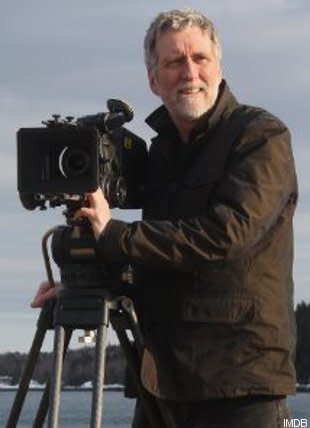Interview: “Playing A Dangerous Game” director John Walker on FLQ, 1969 Grey Cup
Those who complain that Canadian history is boring often haven't heard the interesting bits, and the Front de libération du Québec (FLQ) presents an excellent example of that. Before it became a topic briefly covered in high school classes, the FLQ was a paramilitary separatist organization that terrorized much of Quebec from 1963-1970 with bombings, kidnappings and murders. It even ran into a surprising head-on clash with the CFL, particularly in the lead-up to the 1969 Grey Cup in Montreal, and that's the focus of Playing A Dangerous Game, TSN's next entry in the so-far-stellarEngraved On A Nation series of CFL documentaries, which first airs Friday at 8 p.m. Eastern on TSN. Director John Walker took the time this week to talk with me about the film, and he had some fascinating insights on how this project came together.
Like most of the directors working on Engraved On A Nation films, Walker has been a well-respected presence on the Canadian film scene for decades, but hasn't done a lot of work on the sports side. He said he wasn't sure why he was even approached at first.
"I was like, 'Oh, I don't do sports documentaries, why are you calling me?'"
Walker said the series theme of covering moments, events and people that transcended the on-field action intrigued him, though, and that's the approach he brought to Playing A Dangerous Game.
"They were looking for people to tell stories," he said. "It's not about the game so much, it's about the characters."
Walker's a native Montrealer who was born in 1952, and the events in question took place during his teenage years. He said the issues around the FLQ were something he grew up with.
"It was a major crisis in Quebec," he said. "Politics in Quebec was a national sport."
However, the conflict over the 1969 Grey Cup, which was held in Montreal the same year as a powerful wave of FLQ bombing attacks, was something Walker gained more insight into while putting together this film (with the help of Montreal-based researcher Stephanie Blanshay).
"I had no idea of the importance of the Grey Cup," he said. "It became a larger story while we were doing the research."
CFL commissioner Jake Gaudaur decided to ignore the political turmoil and hold the Grey Cup in Montreal that year, and that wasn't an easy decision. There were plenty of FLQ threats around the Grey Cup, particularly after prime minister Pierre Trudeau said he'd attend. Walker said Trudeau's involvement made the Grey Cup a particular target for the FLQ, as did the CFL's nationalistic presence.
"He was hated by the FLQ, hated by the Quebec nationalists," Walker said. "The FLQ at that time were going after symbols. ... Canadian football, it was a game that was seen as American, imperialistic."
Walker's focus here was characters, and he found two outstanding ones: Russ Jackson, the star Canadian quarterback for the Ottawa Rough Riders who was playing his final game in that Grey Cup, and Robert Cote, a cop with a Montreal bomb squad who was heavily involved in the security efforts, including checking every parade in the floats. Walker said the two came to the game from very different perspectives, but both were in significant danger: Cote thanks to the nature of his job and Jackson thanks to the death threats he received in advance of the game.
"I realized I had two heroes, both playing a dangerous game."
Walker said something that really helped in constructing the film was finding old footage of Cote defusing bombs during this time period.
"The strength of a documentary is really based on your research...it took a lot of digging," he said. "He was an unsung hero of the day, defusing hundreds of bombs."
Given the rising tensions precipitated by the FLQ around this time (amongst other attacks, they bombed the Montreal Stock Exchange in February and mayor Jean Drapeau's house at the end of September), the stakes were high for Jackson, Cote, the CFL, Trudeau and all of Canada. That was reflected in the Grey Cup preparations.
"This was the largest security force in Canadian history for a sporting event," Walker said.
Walker said he was skeptical about making a sports film at first, but it proved to be a tremendous experience.
"I really, really enjoyed it, digging into the history of that time," he said. "Sports is a great subject for a documentary, because it is about character."
He said he hopes he's made a film that will appeal to both CFL fans and those who couldn't care less about football, and one that will showcase a fascinating period in Canadian history that many don't know much about.
"This is a film about a game that's more than a game," Walker said. "This will be a complete eye-opener to most Canadians, especially the younger generation."

 Yahoo Sports
Yahoo Sports 


